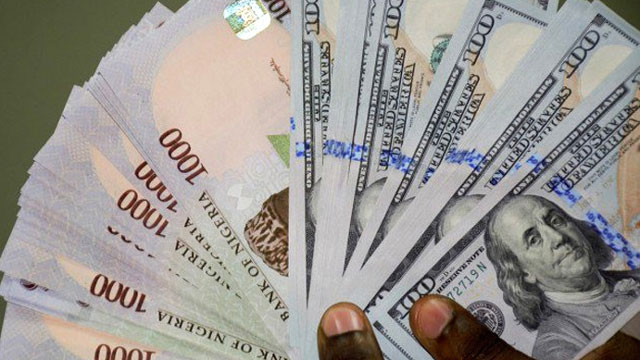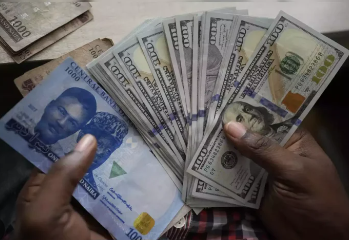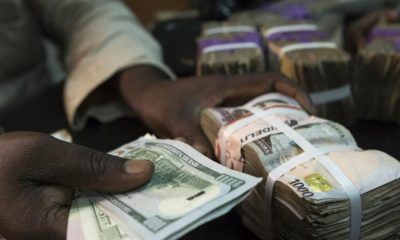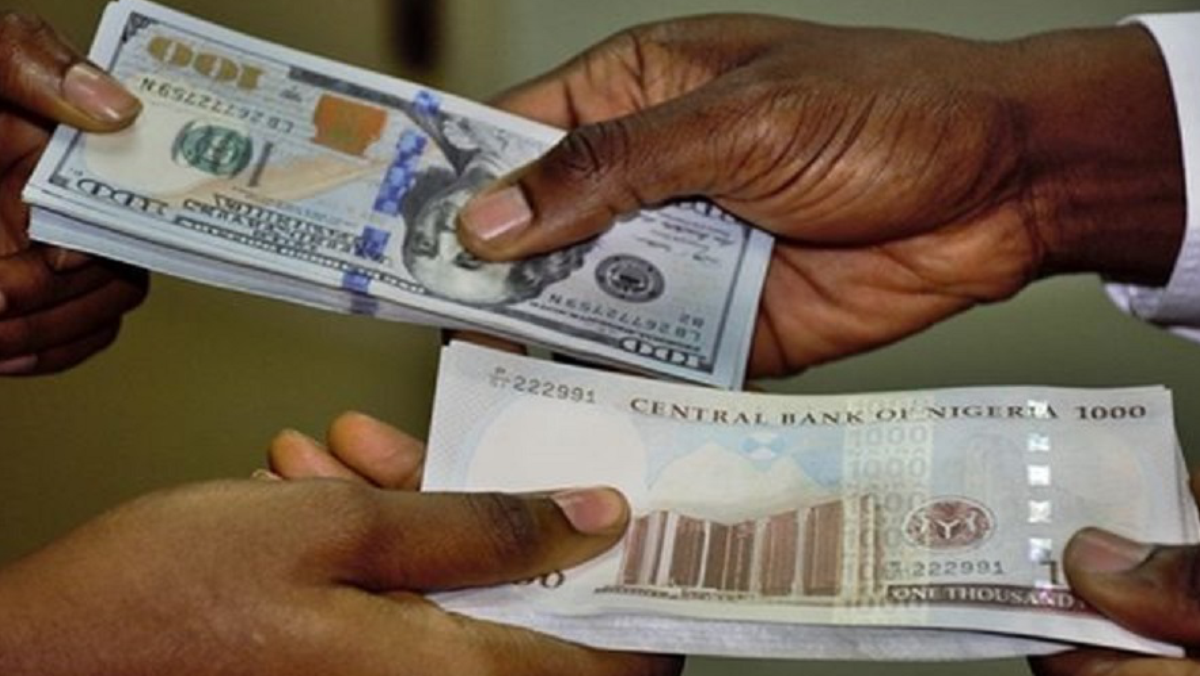Nigeria’s Foreign exchange daily turnover rose to $712.03 million at the investors and exporters window. This shows 747.86 percent increase over the level of $83.98 million recorded the previous day.
After trading on Tuesday, the naira strengthened by N1.29k to N366.59k per dollar from N3667.88k traded the previous day at the same forex window, data from the FMDQ show.
Naira gained marginally by N0.05k to close at N305.60k per dollar as against N305.65k per dollar quoted on Monday at the interbank spot foreign exchange market.
The local currency maintained stability at the black market as it closed at N363 per dollar, representing N1 gain over N364 traded the previous day. It has traded at between N364 and N366 per dollar for over two weeks.
The central bank has been intervening on the official market in the last few months to try to narrow the spread between rates on the official market and black market. It has sold over $5 billion since February.
The Central Bank of Nigeria (CBN) on Monday, July 31, 2017, offered $100 million in wholesale auction at the inter-bank Foreign Exchange market and intervened in the Small and Medium Enterprises (SMEs) and invisible segments, with the sum of $50 million and $45 million, respectively.
Confirming the figures, the CBN acting director, corporate communications, Isaac Okorafor, reiterated that the bank’s intervention was in line with its commitment to sustain liquidity in the market to meet genuine requests as well as deepen flexibility in the foreign exchange market.
ALSO SEE: CBN’s FX inflows declines as outflows rises in May
Monday’s sale follows the major intervention, last Friday, to the tune of $462,336,426.74, comprising $267,336,426.74 for the Retail Secondary Market Intervention Sales (SMIS), $100,000,000 for wholesale interventions, $50,000,000 for the SMEs forex window and $45,000,000 for invisibles.
Okorafor had said last week that the CBN leadership was quite impressed by the positive impact its current foreign exchange management was having on the manufacturing sector, agriculture and economic activities in general across the country.
He said the CBN would not continue working on achieving the objective of convergence between the exchange rates at the Nigeria Autonomous Foreign Exchange (NAFEX) and the Bureau-de-Change segments of the market, even as he assured proper surveillance of the forex market to guarantee transparency in the sale of foreign exchange.
Okorafor also encouraged those who genuinely required foreign exchange for their transactions to approach their banks, noting that the banks had enough forex to meet the demands for foreign exchange within the time frame stipulated by the CBN.

 Entertainment6 days ago
Entertainment6 days ago
 Health5 days ago
Health5 days ago
 Crime5 days ago
Crime5 days ago
 Education7 days ago
Education7 days ago
 Health7 days ago
Health7 days ago
 Comments and Issues6 days ago
Comments and Issues6 days ago
 Football6 days ago
Football6 days ago
 Latest6 days ago
Latest6 days ago










